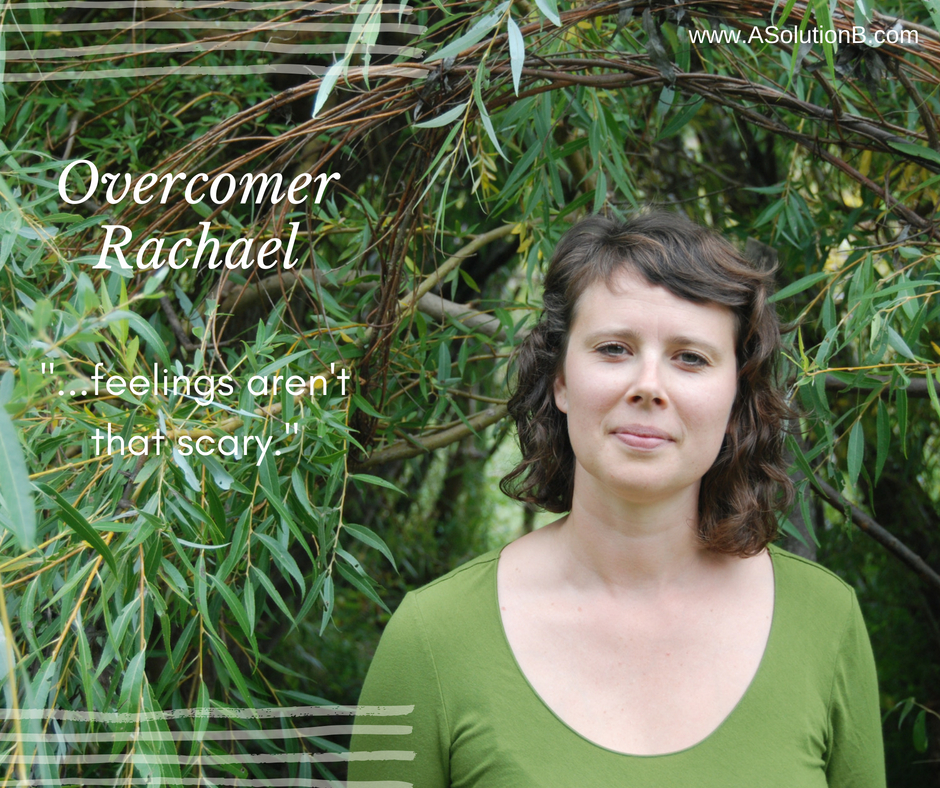Overcomer- Rachael
Rachael is a Certified Hakomi Practitioner out of her Grand Rapids office, Making Space Hakomi. I spoke with Rachael about her practice, how she found it, and about her life in relation to the therapeutic technique which she has become so passionate about. Read below to find what makes Rachael an Overcomer.
What is Hakomi?
Q) What is Hakomi?
A) The word itself comes from a Hopi Native American word meaning "Who am I?" The practice was developed throughout the 1970s and established in the United States by Ron Kurtz . Kurtz had been experimenting with different methods of therapy when he had come across a woman who, during their session, stumbled upon an uncomfortable topic and had shown physical expressions of discomfort and defensiveness. Rather than discourage these expressions, Kurtz supported the woman's defense, even helping her engage in them physically. It was a positive experience for the woman and this helped Kurtz develop the idea of supporting a person's defenses during therapy.
Q) How were you introduced to Hakomi...what was going on in your life to make you want to try something with such a name?
A)I was living with my husband in Oregon when we had our first child. It was major change for me, and during the transition I became overwhelmed and began experiencing depression, which I've experienced before during such transformative periods in my life. After having our child, we made the decision to move to Grand Rapids, Michigan. This decision led to even more change to cope with. On top of this, my family started a farm which,were we were not fully prepared for. It was a feasible idea in Oregon, but less practical in the City of Grand Rapids.
The intensity of the circumstances, caused me to fall back into habitual patterns of behavior in dealing with problems and they were not seeming to help our situation.
A good friend of mine, was the only person I've ever met who would take the time to just stop and see how I was feeling about something." I became intrigued. I then asked him about what it was he did. As I continued to struggle with the changes in my life, I started working with him by phone which was proving effective. It was the first time that I had insights that were settling; and to help her with later on. It produced something more identifiable and workable that was coming from the outside of her and not primarily from her thinking and interpretation about what was going on in her life. The sessions with were also helpful in my marriage. Eventually I discovered the practice that was helping me to be called Hakomi and I wanted to learn more.
Q) What have you learned about yourself during your experience with Hakomi?
A) With Hakomi, we realize that, oh, there are people I want to be open and vulnerable with, and I'm hitting this barrier where something in me won't let me do it. And one thing we do in Hakomi is hang out at the barriers, where it's hard, and not try to fix it, and just be there and understand it more.
Q) What kind of areas do you think Hakomi works best with when it comes to mental—what kind of people do you think it helps the most?
A)With a lot of people there is an education piece. You know, some people they can just sit down, and it works, and they know how to pay attention to their body and they know how to slow down, and it's my job to help with that, so it's not it's totally on the client, but for some people that's super hard and foreign and it takes some learning, but they CAN learn it.
I think all mental health diagnoses are founded in developmental trauma, but some are a lot more extreme than others, and it's not great for that category. But it works really well for people who are able to be curious and mindful and want to understand how they show up in the world more.
Q) When deciding to make this change what was the easiest to carry out and the most difficult to accomplish…why?
A) When I decided to pursue Hakomi there was an ease in my sense of motivation; I had such a love and appreciation of the method and excitement for learning it. The harder parts were working with myself through the Hakomi training and certification period. It was a process through which I encountered more of my own internal nourishment barriers and limiting beliefs as we practiced and learned. So sometimes I wanted to shut down or call it quits but I also knew in a very basic body-informed way, that this was important for me to experience and that being present to my pain and discomfort in a safe container would allow me to grow and develop a more compassionate relationship to myself- and it did.
Q) What would you share with someone who has wanted to explore Hakomi but may be hesitant?
A) I would reassure them that Hakomi is a very gentle process founded on the principle of non-violence. This means that I don’t even impose my agenda on a client! Also Hakomi is very particular to each client and where they are when they show up at any particular session. I never push clients into anything they don’t want to explore. We take our time and make sure safety is established in or relationship before heading into challenging territory. And even then we support and explore the defenses- rather than trying to break them down. It is extremely respectful of the client.
Rachael is an Overcomer and here's why...Despite the challenges she and her husband experienced, she took this opportunity as a time of empowerment, as well as, established a practice to assist others in facing their defenses. It wasn't convenient, it wasn't comfortable, it was however, what she needed to grow into the practitioner she is today and continues to become. I believe we can take a bit of this perspective ourselves and utilize it in our own lives like Rachael... be an Overcomer.
To learn more about Rachael and Hakomi click here
To learn more about A Solution B, LLC click here
Connect with A Solution B, LLC


